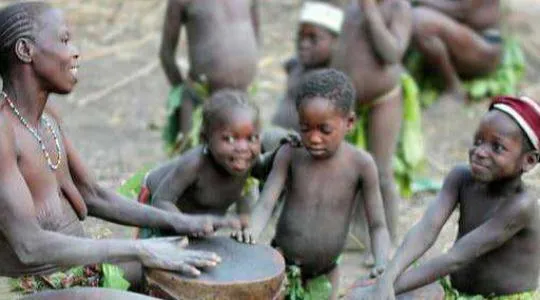The Kambari people are an ancient rural community in Niger state, one of the few who still practice nudity.
A reclusive people, the Kambari people pride themselves on being as independent of the government as possible.
Kamari is a remote community in Birnin Amina in Rijau Local Government Area in Niger state where people go about naked. They are a forgotten tribe satisfied with their simple way of life and their lack of governmental support for a sustainable community.
Way of life
The Kambari people do not speak English or Hausa but speak their native Kambari. They stay in their small communities and only interact with others when they have to go to the farm and market. Nudity as a culture was passed down to them by their ancestors and is a part of them they aren’t willing to let go of. However, when the people go to the market to sell their farm produce, the women cover the bottom half of their bodies with wrappers while the men do the same. Donkeys provide the only means of transport for a largely agrarian and nomadic people.
Marriage
In Kambari, marriage is celebrated by slaughtering goats and cows for food while the parents of the bride cook food for the groom. Once the food is eaten, the marriage is contracted. According to the community chief, what attracts men is not the nudity of the women but how they plait their hair, their good manners, and the tattoos the young women have.
READ ALSO: Apple Music announces Khaid as Up Next Artist for Nigeria
Religion
The Kambari people are not Christians or Muslims like most of northern Nigeria. Instead, they are pagans who worship a god called Magiro. They also believe strongly in witchcraft and magic.
Economy
As part of the Rijua local council area, the Kambari people produce a large percentage of the crops consumed by the entire people of the area. The most popular crops produced are corn, millet, peanuts, beans, and rice. Nearly all of the locals keep chickens and goats for meat while the richer ones have cattle.













